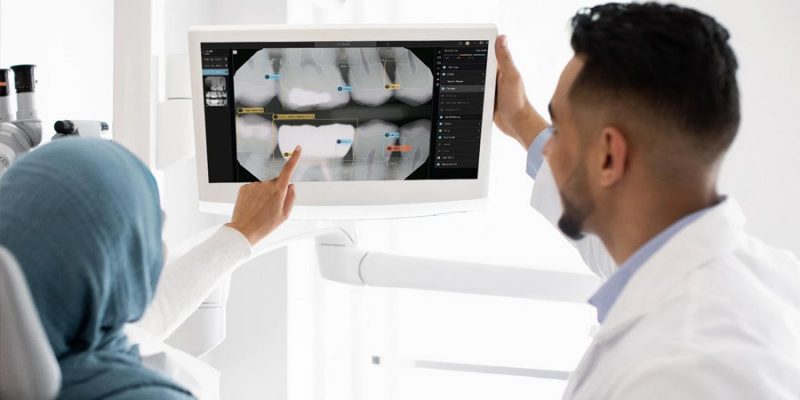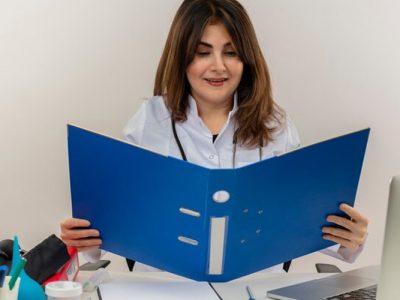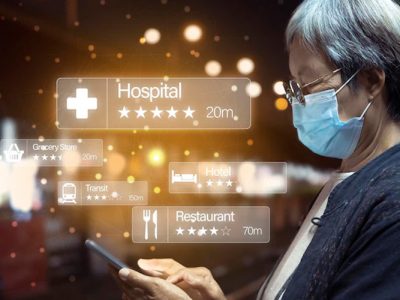
Artificial intelligence (AI) has the potential to change the way dental care is delivered in the healthcare industry.
Artificial intelligence (AI) has the potential to change dental care by enhancing efficiency, speeding up the growth of dental practices, and bringing world-class treatment to a larger population that currently does not have it. However, there is a catch: emerging AI advancements rely on data, which the dental industry now lacks.
Gentledental.com, a subsidiary of NEORDENT HEALTHCARE SOLUTIONS PVT LIMITED and one of the most well-known and fastest-growing dental clinic chains in North East India, is planning to open a new chain of Gen-Z dental clinics across the nation. The newly extended network of Gentle dental. care dental clinics will fulfill the rising demand for single-day dentistry and provide a comprehensive range of in-house dental procedures to the general population. This groundbreaking AI and machine-learning-based dentistry concept is a tremendous accomplishment in a subject that has long been regarded to be incredibly tough. Dr. Hazarika’s experience and inventive thinking are going to make a big contribution to the whole profession with the development of a statewide network of dental clinics that offer single-day dentistry.
In addition, all gentle dental care clinics will offer in-house continuing education centers for physicians and medical professionals, as well as in-house manufacturing centers specializing in 3D-designing and 3D printing of all types of dental prostheses. Single-Day Dentistry is a service provided by these technologically advanced dental clinics and laboratories to its clientele. Given the restricted number of visits scheduled for the day, it provides same-day delivery of crowns, bridges, veneers, and even dentures.
The most recent gentle dental care clinics intend to apply innovative Digital Dentistry practices from the moment a patient schedules an appointment using an AI-based engagement tool. Intraoral scanners, digital imaging equipment, computers with CAD design software, and specialized employees to administer the clinics themselves are all available. Using the latest digital dental technology, the entire treatment will be monitored and recorded, resulting in a faultless and stress-free surgery. This procedure continues until the therapy, regardless of kind, is completed, and all reports are digitally preserved.
The gentle dental care clinic chain has ushered in a new era in the healthcare industry, where modern technology that aids in the treatment of dentistry without defects is promoted, and the concept has extended further. Gentle dental care has a large potential in the home market, especially with a disorganized and scattered dental care industry in place, and is equipped with the best technology and medical professionals in the field functioning on it.
Top AI applications in dentistry that are revolutionizing healthcare:
Tooth decay
Computer vision systems can detect dental degeneration using techniques such as object recognition and semantic segmentation. This is partly done by training CNNs on large sets of pictures with labeled carious lesions. After the model has been trained, raw data may be supplied to the algorithms, which can then identify the lesions on their own. DentalXrai Pro, for example, is an AI-powered application that helps dentists analyze radiographs more accurately and reliably. It does not replace a dentist’s ability; rather, it assists them in more quickly and precisely detecting difficulties and possible treatments.
Oral cancer detection
While losing a tooth is unpleasant, it is nothing compared to the consequences of oral cancer. In the United States alone, more than 10,800 people died from the oral cavity or oropharyngeal cancer in 2021. This figure is rendered even more dismal when you learn that oral cancer has an 83 percent survival rate when identified early. Only 29% of cases are recognized early, which is unfortunate. “Oral potentially malignant diseases” (OPMDs) are visible oral lesions that are a strong indicator of cancer and can be found during normal oral examinations by a general dentist. The issue is that this type of inspection isn’t done nearly often enough during dental exams.
Endodontics
You’ve come face to face (literally) with endodontics if you’ve ever had a root canal. Fortunately, artificial intelligence (AI) offers applications that can assist dentists in detecting and treating these feared illnesses even more efficiently. Radiographic pictures are commonly used by endodontists to inspect, measure, and assess the status of the tooth below the gum line (ie. the root). The structure, dimensions, tissue viability, and even the probable efficacy of therapy for those out-of-sight areas of the tooth may all be determined using AI models.
Treatment planning
So far, we’ve seen how AI computer vision, and machine learning may aid in the diagnosis and treatment of dental problems. Orthodontics necessitates a great deal of planning, and AI may be used to improve analytics for things like estimating the growth of unerupted teeth or the necessity for extraction. Orthodontists must also figure out the optimal way for teeth to move. AI algorithms can compute the optimum path for a tooth or set of teeth to reach their optimal destination given a beginning position and a goal endpoint.
Numerous studies have already discovered significant advantages to adopting AI technology in dentistry, and AI will play a significant part in the dental sector in the future. The future of dentistry is digital.



















